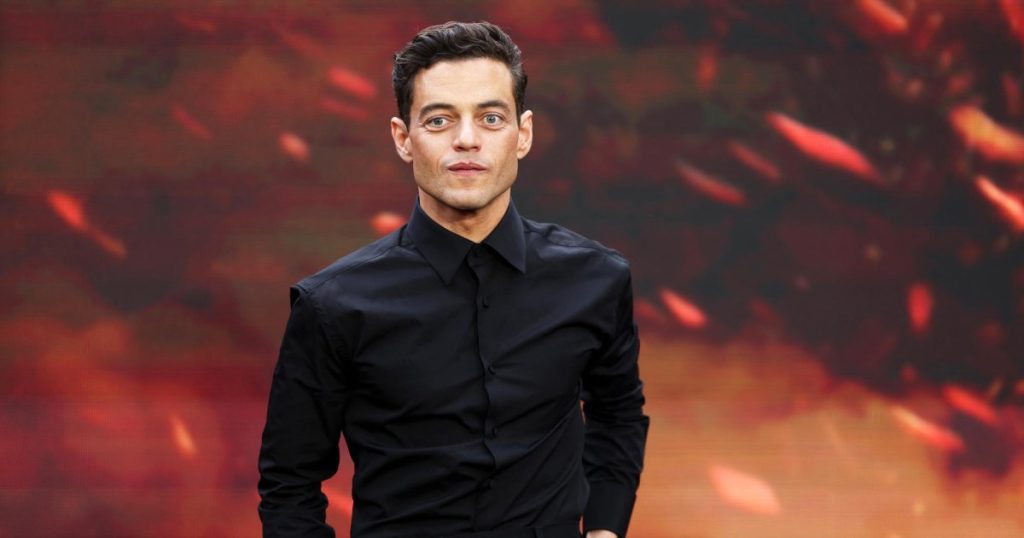Rami Malek, the Academy Award-winning actor known for his portrayal of Freddie Mercury in “Bohemian Rhapsody,” recently shared a troubling anecdote about being racially profiled by the Los Angeles Police Department (LAPD). Malek recounted an incident where he was apprehended and placed on the hood of a police car, suspected of robbing a liquor store and stealing a woman’s bag. The officers allegedly justified their actions by claiming Malek, who is of Egyptian descent, “fit the description” of the suspect, described as being of Latin descent. This experience, though ultimately resolved without arrest thanks to the intervention of a Caucasian friend who clarified Malek’s ethnicity, left a lasting impression on the actor. The incident highlights the pervasive issue of racial profiling and the precarious position individuals from marginalized communities can find themselves in due to biased assumptions based on appearance. While the LAPD has not publicly commented on Malek’s account, the incident raises questions about police procedures and the potential for misidentification based on racial or ethnic stereotypes.
Malek’s experience with the LAPD was not an isolated incident. He has recounted other instances of being mistaken for someone else, particularly while traveling. The increased scrutiny and questioning he faced at border crossings and security checkpoints, often attributed to his distinct features and Middle Eastern heritage, added an extra layer of complexity and stress to his travels. The irony is not lost on Malek that his rising fame, particularly after the success of “Bohemian Rhapsody,” has seemingly mitigated some of these experiences. The recognition he now receives has, in a sense, provided a shield against further misidentification, highlighting the paradoxical nature of celebrity and its ability to influence perceptions and interactions. However, the underlying issue of profiling remains a significant concern, underscoring the need for greater awareness and systemic changes to address such biases.
Growing up in Los Angeles, Malek, along with his twin brother Sami, experienced the challenges of being “othered” in a society often defined by racial and cultural categories. While acknowledging his “white-passing” appearance, Malek also recognized his distinctive features, which set him apart and contributed to a sense of not quite fitting in. This heightened awareness of their surroundings and the subtle cues they picked up from others shaped their perception of the world, a sensitivity they both consider a double-edged sword. This heightened sense of awareness, while potentially beneficial in some situations, also carried a burden, highlighting the constant negotiation and navigation required of individuals who straddle multiple cultural identities. The brothers’ experiences underscore the complexities of identity formation, particularly for those whose backgrounds don’t neatly align with pre-existing societal categories.
The influence of their parents, particularly their mother, played a significant role in shaping Malek’s perspective and work ethic. He recalled his mother’s unwavering dedication to providing her sons with the best possible opportunities, despite facing significant challenges and systemic disadvantages. Her handwritten letters to the school, advocating for her children and explaining their circumstances, served as a testament to her commitment. The stories of her arduous commutes, taking multiple buses while pregnant with the twins, underscored the sacrifices she made for their future. These experiences instilled in Malek a deep appreciation for hard work and a determination to make the most of the opportunities afforded to him, recognizing the immense effort and dedication that paved the way for his success.
Malek’s narrative provides a poignant glimpse into the complexities of identity, the challenges of navigating societal biases, and the enduring power of family. His experiences with racial profiling, while deeply personal, resonate with broader societal issues surrounding race, ethnicity, and prejudice. The incident with the LAPD highlights the potential for misidentification and the consequences of relying on stereotypes in law enforcement. His experiences with heightened scrutiny while traveling further underscore the challenges faced by individuals whose appearances don’t conform to dominant societal norms. These experiences, coupled with his upbringing in a family that valued hard work and perseverance, have shaped Malek’s perspective and contributed to his success as an actor and advocate.
The actor’s willingness to share these personal anecdotes sheds light on important conversations about representation, diversity, and the need for greater understanding and empathy. By using his platform to speak about these issues, Malek contributes to a broader dialogue about the complexities of identity and the importance of challenging preconceived notions. His experiences serve as a reminder that even individuals who achieve significant success can still face challenges related to their background and appearance. Malek’s story encourages reflection on the pervasive nature of bias and the need for ongoing efforts to create a more just and equitable society. His openness and vulnerability in sharing these experiences contribute to a growing awareness of the challenges faced by marginalized communities and the importance of advocating for positive change.

